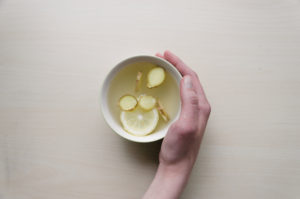
Zinc
Zinc works by preventing a type of virus called rhinovirus (a family of more than 100 viruses), from multiplying. It also prevents cold viruses from attaching to cells in the lining of the throat and nose. Lozenges are the best form because it allows zinc to stay in the throat where the cold virus lives. Avoid taking zinc on an empty stomach, as it can trigger nausea. Also, do not eat or drink anything for 30 minutes after you take the zinc.
Oregano Oil
This powerful oil is distilled from leaves of the oregano plant. It contains carvacrol, thymol and rosmarinic acid, which are powerful compounds that have antibacterial, antiseptic and antioxidant properties. Take 1-2 drops under the tongue every few hours or mix 4-5 drops in a glass of orange juice.
Black Elderberry Syrup
Black elderberries have been used for centuries to treat illnesses such as the cold and flu, due to its high flavonoid content and immunostimulant effect. Studies show that it has the capability to reduce the duration of the flu by four days if consumed within 48 hours at the onset of symptoms. Take 1-2 teaspoons per day as a preventative.
Garlic
Garlic is a powerful antioxidant with antimicrobial, antiviral and antibiotic properties. When it is crushed or chewed, it releases allicin which boosts the production of white blood cells that defend against viruses. Regularly eating garlic can help prevent the cold or flu. Unfortunately, to get the best effect you have to eat it raw.
Hydrogen Peroxide
Most viruses enter the body through the ear canals or nose. Hydrogen peroxide can kill colds before they enter your system. Using an eye dropper or cotton swab, put a few drops of hydrogen peroxide in each ear as soon as you feel signs of a cold.
Ginger
The anti-inflammatory properties of gingerols and shaogals in ginger root can help relieve sore throats and kill rhinoviruses. Fresh ginger is most effective. Chop a piece or finely grate it into a cup with hot water, honey and lemon juice.
Manuka Honey
The antibacterial properties of Manuka honey are so powerful that hospitals use it to ward off antibiotic-resistant strains of bacteria, like MRSA and VRE. It contains more vitamins, amino acids and antioxidants than any other honey in the world, which is probably why it’s the most expensive. For cold and flu symptoms, take 3-4 teaspoons per day.
***This content is not intended to be a substitute for professional medical advice, diagnosis, or treatment. Always seek the advice of your physician or other qualified health provider with any questions you may have regarding a medical condition.